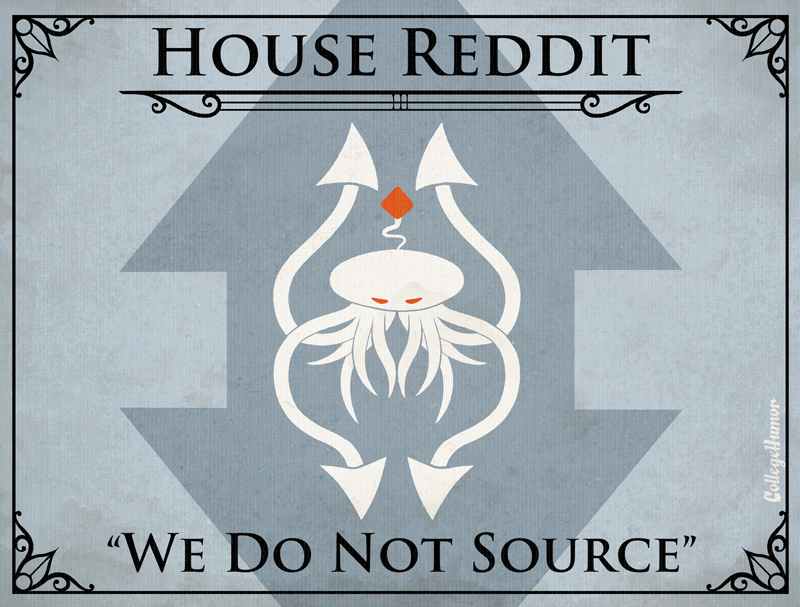
“Dark Wings, Dumb Words.”

Haunting the Web Since 1999

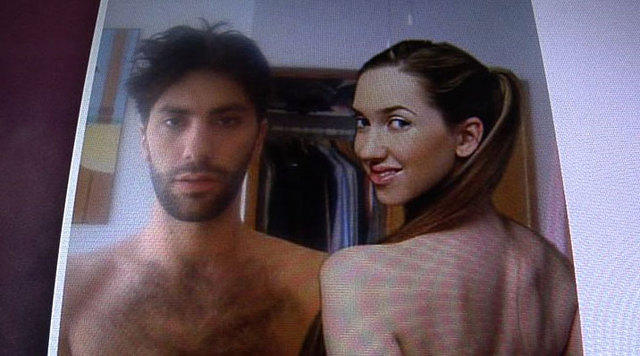
This is a movie that’s hard to talk about without giving away its central hook: Let’s just say it’s the “true” story of a young man (Yaniv Schulman) who meets a girl on the Internet and gets more than he bargained for. If you don’t want to be spoiled any more than that, I’d go ahead and skip the rest of this post. (FWIW, there’s definitely a case to be made for having no information on this one: The two friends I went with had no clue what the film was about going in — Was it a vampire movie? A zombie movie? A human-animal hybrid movie? — and so they found it much more suspenseful than I did.) For everyone else, well, I’ll see you in the next paragraph.
Still here? Ok, well, walking out of Catfish, I had two thoughts about it. First, it was at least kinda interesting to sit through a movie about the client-side of Facebook so soon after seeing the server-side tale told in The Social Network. (If you see one movie about Facebook, tho, see The Social Network. It has its problems, but it’s a far, far better film.) Second, I thought the entirety of this movie can basically be summed up in four words: “Psycho preys on douchebag.” Now, upon further reflection, that’s obviously a very uncharitable way of talking about real, honest-to-goodness people. So let me rephrase it: Catfish is probably better described as: Deeply lonely, possibly schizophrenic Midwestern housewife preys on…douchebag.
Seriously, Yaniv, the self-satisfied, Lower East Side-hipster main character we follow here, feels like he just walked out of Cloverfield. He’s just an annoying, deeply pretentious person, and it’s not much fun to spend time with either he or the two directors, who play a larger role in the story as the film goes on and who are, basically, birds of a feather. But that isn’t even why they deserve the moniker — Ye shall know them by their deeds. These guys are douchebags because they pretty clearly set out to make a movie, and their names, by exploiting that aforementioned sad, sick housewife. Catfish spends most of its run trying to make it seem like Yaniv is the unassuming prey of an Internet fraudster. Wrong. He and the directors are the predators here.
As Catfish plays out, Yaniv first gets an e-mail from a young girl in rural Michigan who’s apparently an art prodigy — She sends him a painting of a photo he took for a magazine. Later, he falls into an online relationship with the girl’s attractive older sister. The two text, they chat on the phone, they eventually cyber But gradually, over the course of months (according to the film), Yaniv figures out that the details don’t add up. The songs he’s sent were recorded by other people, the addresses don’t match what Google Earth has to say. And, when he and the directors finally go out to Michigan to figure out the score, they find that both girls, and their many online friends for that matter, were all the figments of one desperate woman’s imagination.
A potentially intriguing story, I guess, if the protagonist was more likable. Or if, you know, the entire series of tubes was restricted only to Facebook or something. But, as Movieline‘s Kyle Buchanan well put it: “I don’t buy it at all; I think the filmmakers knew from the start what they had on their hands, and they baited a mentally unwell woman for almost a year until their film needed a climax.” That was my sense too — In fact, I found it hard to imagine any other possible conclusion.
Are we really supposed to believe that Yaniv and/or his two directors — who are even making a movie about an online relationship, for Crom’s sake — never took the time to google these Michigan girls at some point? I, and most people I know, google each other before a first date. Also, I would tend to think that child art prodigies, who are ostensibly selling paintings for a few thousand dollars a clip, tend to run up some copy in the local papers. Did Yaniv never think to look them up? Didn’t he want to see what other works of art she might have painted? In fact, why are the cameras even rolling in the first place?
One could argue, I suppose, that Catfish just shows the lengths that people — in small-town Michigan and the heart of New York City alike — will go to feel special and/or see their names in lights. But we have a universe of reality shows on television that already make that point. In the end, Catfish could have just been kinda boring. But sitting through the filmmakers and their star here (not credibly) play the dupes for eighty minutes, and then watching them try to pin down their mercurial, sad, and lonely find on camera for the last twenty or so, the experience went from unnecessary to downright unpleasant. So, congrats on that, I guess.
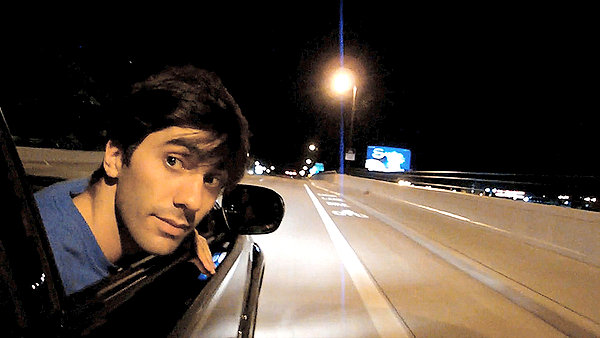
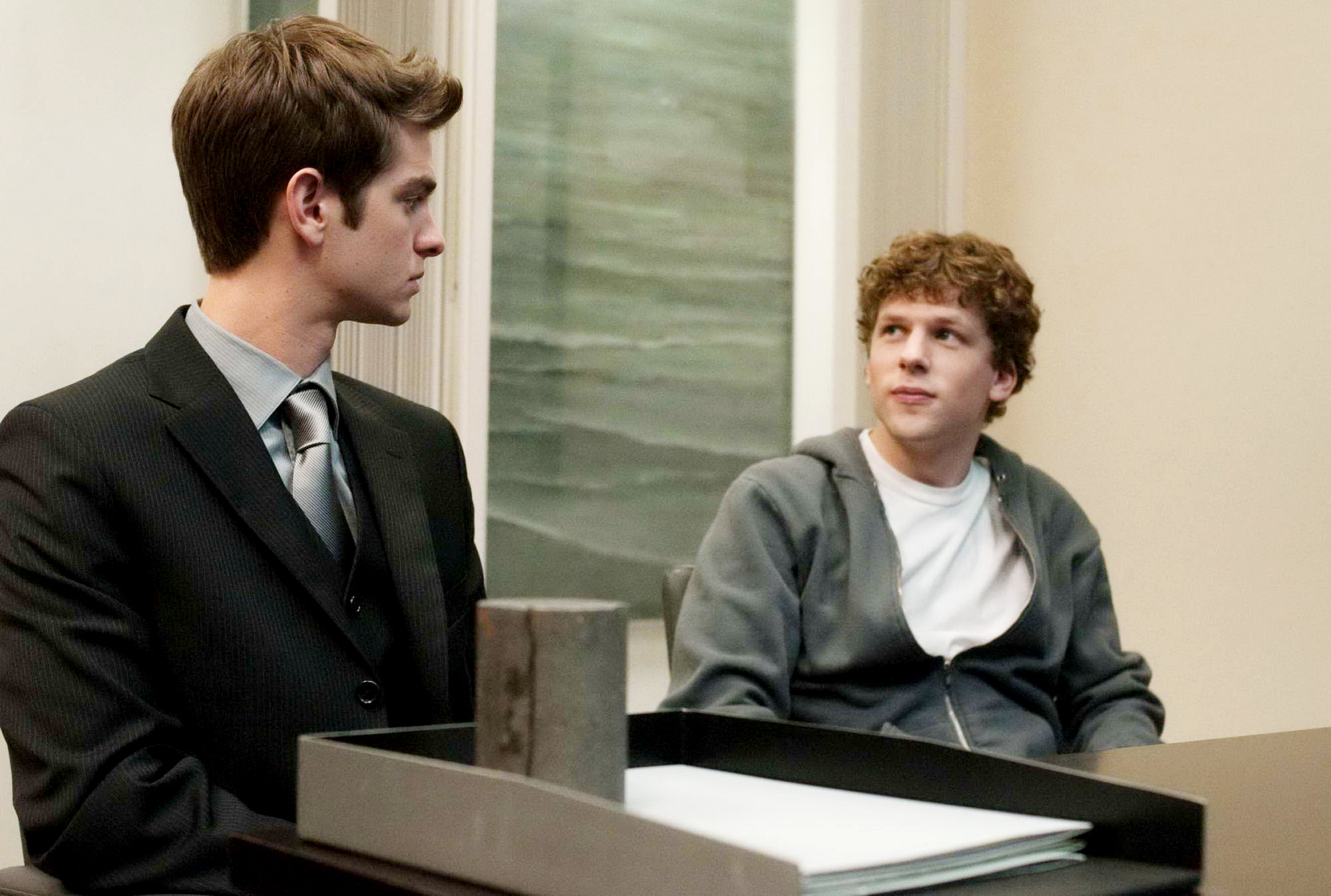
Suffice to say, this movie is a lot like its protagonist — fast-talking, occasionally irritating, oftentimes more clever than it is smart, and ultimately endearing despite itself. In all honesty, The Social Network irked me quite a bit in the early going, but it also managed to win me back by the closing credits. The highest praise I can give Fincher’s film in the end is that I enjoyed it, would recommend it, and look forward to seeing it again, even despite the fact that, when it came to any aspect of the story I actually knew anything about, the movie was often aggravatingly, woefully wrong.
First, the story. The Social Network begins with a very Aaron Sorkin-y dispute at a bar between Erica, an attractive young BU co-ed (Rooney Mara, soon to be Fincher’s Lisabeth Salander), and Mark, her geeky-arrogant Harvard boyfriend (Jesse Eisenberg, here making a bold move to outflank his actorly nemesis, Michael Cera). For some reason, Mark is seriously sweating what Finals Club — a.k.a. the old-school, Harvard version of the fraternity scene — he might end up in, so much so that he eventually lets his disdain for his girlfriend slip out. (“Why do you keep saying I don’t need to study?” “You go to BU!“) And so Erica wisely walks out of the picture, leaving Mark stewing in the cauldron of feminine slight, status anxiety, and nerd-rage from which, presumably, world-conquering social websites are eventually born.
Having introduced Mr. Zuckerberg and his general unpleasantness, The Social Network proceeds to tell his story. How, after bad-mouthing Erica on his blog (First rule of blogging: Don’t drink and blog), he embarks on a plan of revenge against all of womanhood by coding up a Harvard “Hot or Not” knockoff called Facemash. How this stunt gains him both notoriety on campus and the attention of Tyler and Cameron Winklevoss (both Armie Hammer), a pair of Old Money, Olympian-class rowing twins — and members of the Porcellian! — who need a coder for their website idea, “The Harvard Connection.” And how Mark, along with his kind-hearted (and wealthier) best friend Eduardo (Andrew Garfield, the heart of the film), may or may not steal their idea to create his own social portal, “The Facebook”– which, as we all know, eventually leads to mo’ money, mo’ problems, as a wise man once put it.
This origin story is smoothly told throughout — remarkably so, in fact. The action cuts back and forth between the shenanigans taking place at Harvard and, eventually, Silicon Valley (Enter Justin Timberlake, playing an outsized, Faustian version of Napster’s Sean Parker) and, after the millions have been made, two grim depositions: Mark is being sued separately by Eduardo and the Winklevoss twins, who he memorably dubs the “Winklevi.” And throughout, it’s hard not to appreciate how relentlessly smart the movie is. In the early going, to establish Mark’s coding prowess, there’s even an admirable attempt to explain the basics of how he puts together Facesmash: “First up is Kirkland. They keep everything open and allow indexes in their Apache configuration, so a little WGET magic is all that’s necessary to download the entire Kirkland facebook. Kids’ stuff.”
So what’s the problem? Well, I’m not a coder by any means, and I definitely wasn’t present at the birth of Facebook. But I did go to Harvard, spent more than a few hours in the crew tanks, own and have rocked the Henley jacket, and have cooled my heels in the Porc’s bike room before. And when it comes to the alma mater, the film is severely off by at least three or four decades. The Harvard of The Social Network is pre-meritocratic — It looks right but feels totally wrong. Really, who cares about Finals Clubs anymore? Slate‘s Nathan Heller already eviscerated the movie on his front, and he’s absolutely right: “I recognized their Harvard, but only from Love Story and The Paper Chase, not my experience. To get the university this wrong in this movie is no small matter.”
And so a lot of the The Social Network just felt ludicrous to me. Early on, they try to portray a party at the Phoenix, one of the Finals Clubs (in my day, probably the most ethnically diverse and least douchey of them, to boot), as the very pinnacle of exclusivity, where the beautiful people party. In the film, attractive, revealingly-dressed women bus in from all over Boston to see if they can get past the rope line. In reality, parties at the Phoenix were…well, college frat parties. The very fact that I got drunk at them occasionally doesn’t speak highly of either their exclusivity or their beautifulness. In other words, Finals Clubs are kinda sad and desiccated these days. They were glorified frats, and nobody took them at all seriously — not even the private school kids who might have a vested interest in keeping up the old appearances.
That is just one example, but it happens over and over again in The Social Network. That aforementioned sinister-seeming bus of farmed-in party girls — well, Cambridge folk know that’s the “F**k Truck”, and it was just a bus route, no more, no less. I was a regular on it for months when dating a woman out in Wellesley. But it seems like Sorkin heard the nickname and went wild with it. There’s another scene where Eduardo and others are hazed about “the Statue of the Three Lies, and some frosh flubs it wildly. But the three lies are Firstyear 101. Everyone knows ’em, and there’s no way a kid, however wasted, would blank out like that. The whole scene just seems inserted in to show off Sorkin’s Harvard research.
And don’t get me started on the crew stuff. On one hand, it’s a real kick to see the sport get some props here — One scene, set to a Reznorized version of “Hall of the Mountain King”, even shows the Winklevi competing at Henley. (Not much love for coxswains, alas.) But then the Wonder Twins meet “His Royal Highness,” the Prince of Monaco (as a friend pointed out, it’s His Serene Highness.”) And, when said prince says it’s the closest race he’s seen in 30 years, Tyler replies: “[M]ile and a half races are more commonly won by a boat length or two.” Uh, no, races come to within a few seats, or even a few bowballs, all the time. And Henley is actually a 1.3 mile race, and one that rowers would normally talk about in meters — here, 2112 — in any case.
FWIW, this inattention to detail is a recurring problem I have with Aaron Sorkin’s output — The West Wing, a show which I know is much-beloved, also had more than its fair share of aggravating errors. (To take just one example, I remember President Martin Sheen complaining in the last episode about the Founders picking the cold month of January for inauguration day. They didn’t.) And in both The West Wing and here in The Social Network, every single character speaks in exactly the same hyper-clever, overwritten voice, and that over-writing, to my mind, generally tends to be fast and sloppy (Or, to be uncharitable about it, coked out.)
Are these quibbles? Well, maybe, but they add up, and I eventually thought the minor-but-accumulating errors of truth hamstrung the overall truthiness of the project. If Harvard isn’t actually a citadel reigned over by bluebloods and subdivided into all-important Finals Club fiefdoms (and it isn’t), then the Match Point-esque status anxiety driving Zuckerberg here isn’t at all convincing.
Or, to take another problem: At the time this story begins, in the fall of 2003, I was in New York and dating someone I’d met on Friendster. But you don’t get any sense from this story that Friendster, or MySpace, or even the Columbia Campus Network were already well-established by the time Facebook was concocted.
The point being, the entire movie is constructed as if Zuckerberg et al are fighting over this ground-breaking and wonderful new idea. But, as Larry Lessig pointed out in TNR: By 2003, the idea of a social network was really nothing new at all. The origin of Facebook is really a story about execution: As Lessig writes, “In interviews given after making the film, Sorkin boasts about his ignorance of the Internet. That ignorance shows.”
In an effort to make the Facebook idea seem unique, Sorkin & Fincher argue here that it’s the site’s exclusivity that makes it something altogether new. Really? I don’t buy that, particularly when the worries about exclusivity theoretically driving Zuckerberg here ring so false. Don’t get me wrong — I liked The Social Network, and I had a lot of fun watching it. But, while Fincher’s film may be a very entertaining whirlwind tour through the stately pleasure domes of Harvard and the Bay, it’s also aggravatingly lacking in veritas in ways both great and small. I’d friend The Social Network, sure, but unfortunately it’s not the all-time classic that the online hype suggested.
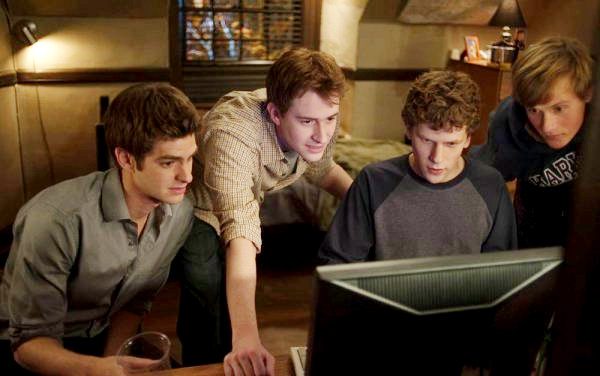
After a few audio-only teasers, David Fincher releases a wonderfully melancholy trailer for The Social Network, with Jesse Eisenberg, Justin Timberlake, Andrew Garfield, Joseph Mazzello, Armie Hammer, and Rashida Jones.
I was definitely catching this film anyway. But, I gotta say, this clip really brought to mind in a visceral way the old college days, and not just due to that mournful, nostalgia-inducing Radiohead cover and the presence of my old ’97 classmate Rashida. The crew tank, the Henley jackets, the Weeks footbridge, the Finals Club prepsters, the scullers, the dorm fireplaces, low ceilings, and cruddy furniture, that muted, wintry, wood-panelly palette…Even more than movies like Love Story or the egregious With Honors, this clip just looks and feels like those Cambridge days of yore (even if, in my era, we were still well on the far side of Friendster.)
What would you do if Mark sang out of tune? Would you stand up and walk out on him? Heavy is the head that wears the Facebook crown in this minimalist teaser for David Fincher and Aaron Sorkin’s The Social Network, with Jesse Eisenberg, Justin Timberlake, Andrew Garfield, and Rashida Jones. Great pedigree, great cast, looking forward to it.
“An application that lets users point a smart phone at a stranger and immediately learn about them premiered last Tuesday at the Mobile World Congress in Barcelona, Spain. Developed by The Astonishing Tribe (TAT), a Swedish mobile software and design firm, the prototype software combines computer vision, cloud computing, facial recognition, social networking, and augmented reality.“
Well, that should really facilitate the stalking (and now everyone will know right away I like sunsets and long walks on the beach…) The Atlantic‘s Derek Thompson reports in on Recognizr, a smartphone app soon likely to cause all kinds of consternation and unwanted advances in a town near you.
Casting for Kenneth Branagh’s take on Thor fills out, with Jaimie Alexander and Colm Feore joining the cast. Alexander plays Sif, while “Feore’s character is shrouded in mystery, though it is known to be a villain.” (That spells trouble to me — Be it stage or screen, Feore can be super-hammy.)
Whoever Feore is playing (Mephisto?), it’s not Loki — That would be Tom Hiddleston, appearing alongside “Papa Kirk” Chris Hemsworth as Thor and Natalie Portman as Jane Foster.
Meanwhile, the strange Aaron Sorkin-penned, David Fincher-directed Facebook movie, The Social Network, gets a cast in Jesse Eisenberg, Justin Timberlake, and Doctor Who alum Andrew Garfield (also soon to appear in Gilliam’s Imaginarium.) “Eisenberg will play Facebook CEO Mark Zuckerberg; Timberlake will play Sean Parker, the Napster co-founder who became Facebook’s founding president; and Andrew Garfield will play Eduardo Saverin, the Facebook co-founder who fell out with Zuckerberg over money.“
Since it’s getting such good press around the blogosphere (and since Raza at High Industrial was kind enough to send me an invite), I’ve opened an account over at Flickr, which so far seems like a rather neat photo-sharing application (and one whose deep functionality is probably wasted on me.) At any rate, I’ve been meaning to take more pictures lately, so hopefully this’ll provide a nice impetus. If you’re on there, say hello.
While tooling around on Friendster the other day, I noticed I’d somehow lost a handful of friends very recently. Now I know why…one of them was fired for blogging. (More here.) Hmmm…given the innocuous content of Troutgirl’s posts, this would be lame in most any circumstance. But since Friendster’s whole bag is “social software,” this seems particularly pathetic. (Found via Plasticbag.)
Friendster cracks down on imaginary friends. I was wondering what happened to my boy Chewbacca.